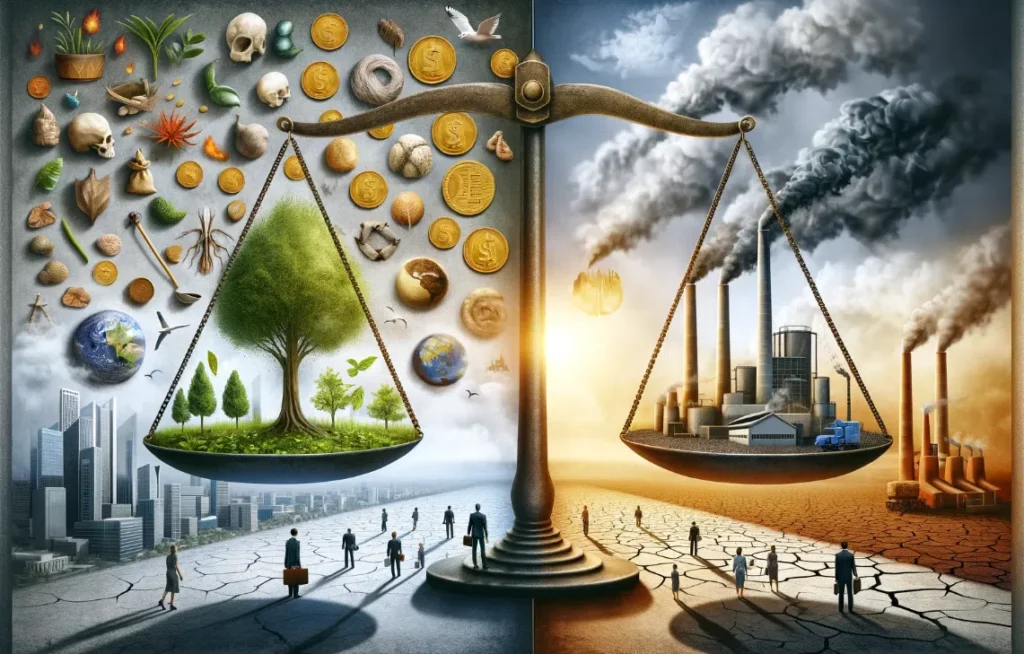Climate Change has emerged as one of the biggest issues of concern on the social calendar as it has been linked to a wide range of economic effects around the world. Seasonal variation and the Economic Impact of climate change emerge more strongly on vulnerable complex systems in the social-economic system including agricultural production, infrastructure, human health and financial markets.
The time has come to examine these aspects and compare them to regular or ‘smooth’ climate conditions so that businesses, policymakers and ordinary people comprehend how Climate Change undermines economies.
Recent Reports on Economic Losses
A recent report examined how climate change could affect 22 different sectors of the economy under two different scenarios: as international standards suggest, if temperatures were to rise by 2.8˚ C from pre-industrial levels by 2100, or 4.5˚ C both.
The World Bank has also identified that the developed countries, particularly the countries of Africa and South Asia will face even worse impacts as the developing countries of the world have less capacity to respond to climate losses. The insurance companies are now following the situation and facing increased claims which in turn increase premium costs out of the reach of many at times.
Agriculture and Infrastructure
The most susceptible sector is the agricultural one. Though climate change is beyond dispute, shifts in rainfall productivity and unfavorable climatic conditions render crop production and food security almost impossible hence high food prices. Those reliant on agriculture are already feeling the heat with productivity has begun diminishing which means food insecurity and rural income generation is under threat.
Human Health and Productivity
The Economic Impact of Climate Change also effect Human Health and Productivity system. If the temperature increases by another 4.5 ˚ C by 2090, 9,300 of the population in American cities will die from heat-related ills. They have also observed that increased temperatures result in more heat charges, respiratory difficulties and diseases including malaria and dengue.
These health impacts mean that people cannot work anymore, especially as they become incapable of doing manual jobs. Besides, reduced working hours in hot temperature areas of the world for example through reduced working conditions like construction and agricultural related sectors adds on to the reduction in the economic output.
Businesses and the Financial Market
Businesses are strongly impacted by the effects of climate change especially in such areas a tourism, agriculture and manufacturing. Natural disasters cause disruptions to operations and closures or even permanent losses to companies, making them lose their revenues and having to lay off employees. It is gaining popularity for market participants integrate climate risks into investment decisions as they impact the value of assets, stock prices as well as investment income.
Climate Change and Opportunity
Altogether, climate change has many economic implications, among which risks are dominant, though the climate change may open fresh opportunities for development of new technologies, namely, the green technologies. New sources of employment could be conceived of from renewable energy, sustainable agriculture baseUrl and green building, among others.
Those countries which are investing in green technology today may well be the winners when the new economy for low carbon is created. . In the same way, agreements like the Paris Accord provide a common guideline governing efforts of countries in responding to climate change and economic development.
Conclusion
However, due to these challenges, there is also potential for nations and businesses to consider green solutions among those willing to become pioneers of change. Despite the ever increasing climate risks, there is need for policy to overlay, investment in sustainable technologies and international cooperation. Therefore, engaging in actions today to counterbalance economic cost of climate change will be beneficial not only for the generation successively following it.
